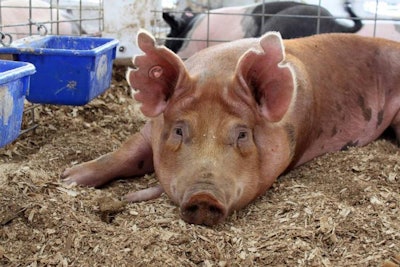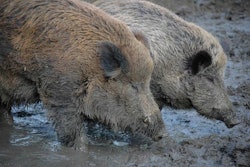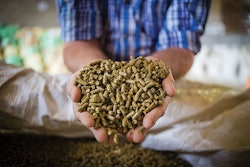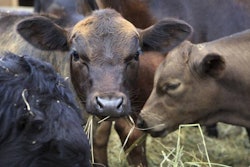
Chinese sources report no new cases of African swine fever (ASF) during the past week, but the disease has been officially recorded in the wild boar populations in Belgium, Poland and Romania, and domestic pigs in Ukraine.
A recent report that the ASF situation in Poland was under control may have been premature.
The disease has returned to the wild boar population in Poland’s eastern and northeastern provinces, according to the latest report from the agriculture ministry to the World Organisation for Animal Health (OIE). A total of 137 animals were found dead at 70 locations in the regions of Mazovia, Warmia-Masuria, Podlaskie, and Lublin in the first week of January alone. The area is already covered by ASF restrictions.
Romania’s veterinary agency continues to report weekly new cases of ASF to the OIE. These include four outbreaks in domestic pigs — three in small backyard herds in the counties of Braila, Salaj and Covasna — and in one pig found dead near a road in Timis. A total of 101 wild boar at 15 locations across Romania have also tested positive for the ASF virus.
This week, Belgium’s Chief Veterinary Office has released a declaration that all domestic pigs and wild pigs kept in captivity in the country are free from ASF under OIE rules.
In its latest official report to the OIE, the Belgian Federal Agency for Safety in the Food Chain has confirmed 13 more cases of ASF in wild boar during the last week of January. All involved animals living wild in the area of Luxembourg province previously are affected by the disease.
There have been two new outbreaks of ASF in Ukraine in the past week. One of these was in a small backyard herd in the town of Borodianka in Kiev province — the latest in a series of outbreaks dating back to November 2016.
The second outbreak was in the previously unaffected Kharkiv region in the east of the country, where seven pig carcasses tested positive for the ASF virus after being found dumped near the city of Kharkiv. They were the first cases of the disease in this area since March 2018. Kharkiv shares a border with Donetsk province, where an ASF outbreak had been reported the previous week.
China: ASF cases slowing down
Ahead of the Lunar New Year festivities — celebrating the start of the Year of the Pig — China’s agriculture ministry reported a decline in the number of ASF cases, reports Xinhua. Just five new cases were confirmed in January. None was reported to the OIE in the past week.
As of February 1, control restrictions have been lifted in 92 areas in 23 provinces, and 17 provinces “have been freed from the epidemic,” according to Xinhua. However, the ministry warned that the ASF risk will remain for some time, and urged vigilance and controls to be maintained.
While the number of confirmed ASF outbreaks in China since August last year remains at 104 with 25 provinces affected, the Food and Agriculture Organization (FAO) of the United Nations has increased its estimate of the number of pigs culled to halt the further spread of the disease to more than 950,000.
Africa: ASF resolved in Chad
The State Veterinary Service has notified OIE that the ASF situation in the central African republic has been “resolved.”
After an absence of more than two years, the disease returned to Chad in August last year, causing two outbreaks in domestic pigs in different districts of the capital city, N’Djamena. Source of the infection was never identified, but there were no further cases of the disease.
View our continuing coverage of the African swine fever outbreak.

















